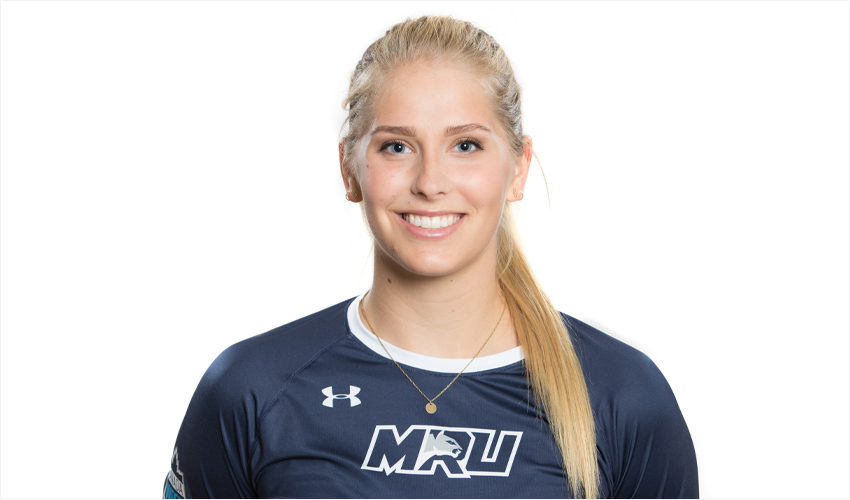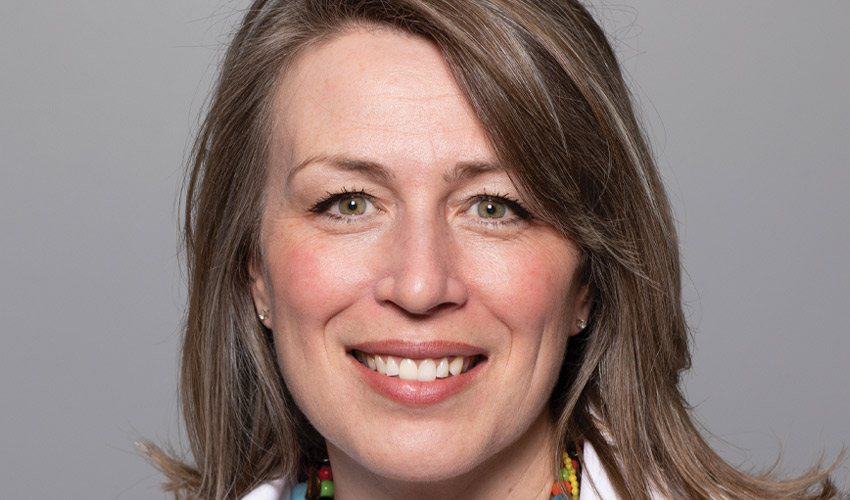Identifying gender gaps and barriers in board work
MRU and local not-for-profit team up for research project
— Mount Royal University | Posted: March 6, 2023

Chantel Cabaj is the executive director and founder of DirectHer.
Much of our everyday lives are impacted in some way shape or form by the work of boards, whether it be a board of directors, a board of governors, advisory board, and so on. Professional- and community-based boards govern, direct and in some cases make decisions that can have consequential trickle-down effects.
For example, the decisions a condo board makes often has direct impacts on residents. As such, examining the individual makeup of these boards is imperative to understanding the barriers and gaps preventing those who do not normally take part, such as women and gender-diverse individuals.
Thanks to funding from the Social Sciences and Humanities Research Council (SSHRC) through a Partnership Engage Grant, Mount Royal’s Dr. Rachael Pettigrew, PhD, an associate professor of general management and human resources in the Bissett School of Business, was able to partner with the DirectHer Network to undertake an extensive research project resulting in a recently published preliminary report titled Pathways to Board Work for Women and Gender Diverse People: Understanding Experiences and Barriers.
DirectHer is a local not-for-profit that provides governance training for women and gender-diverse individuals, and is led by executive director and founder Chantel Cabaj. She says boards are often the final decision maker for organizations, so when those around the table all have similar backgrounds, certain perspectives may be missed.
“That’s why diversity is important when it comes to boards because they are making some pretty important decisions and shaping the direction an organization takes.”
Cabaj points out that this is a unique area of research, because often the data around board composition is pulled from well-established, publicly traded companies and organizations, whereas this report studies three other categories of board type: not-for-profit, government and for-profit.
Pettigrew agrees, explaining that mandatory disclosure around representation and diversity only tells one side of the story. “That’s who has made it to the table, and what we wanted to look at was the other end of the talent pipeline for boards. We wanted to look at aspirations, experiences, barriers and training needs for women and gender-diverse people who are interested in the path to board work.”
Canada introduced mandatory disclosure requirements in 2015, and since then there has been a slow increase of the representation of women and gender-diverse individuals on boards. In 2021, women held 33.2 per cent of board positions among 60 S&P/TSX companies, according to the report.
As part of the research, 358 women and gender-diverse people completed an extensive survey, followed by four one-hour focus groups comprised of six to eight participants.
The completion of the preliminary report was significantly supported by research assistant Quinn Pelland, a Bachelor of Business Administration student (who is also captain of the Cougars women's volleyball team) on her way to completing a double major in human resources (honours) and general management.

Quinn Pelland is a Bachelor of Business Administration student and captain of the Cougars women's volleyball team on her way to completing a double major in human resources (honours) and general management.
Taking part in this project has provided Pelland with a deeper understanding of academia and research. She adds that having the research assistant role will be hugely beneficial for her career moving forward, no matter what she chooses to do, whether it be more schooling or entering the workforce.
“Seeing how you go about writing a paper like this and doing the analysis has been a really great experience for me,” Pelland says.
Key findings
There’s plenty of data that Pettigrew, Pelland and Cabaj are still combing through and analyzing. However, some key themes have emerged from the preliminary findings.
“There is no lack of interest from women,” according to Pettigrew. Survey results have allowed for the demystification of the stereotype that women and the gender-diverse simply do not want to be involved in this kind of work.
The other key finding, Pettigrew says, is the multitude of different pathways into board work. It’s something they suspected going in, but were still somewhat surprised by the result.
“It’s not a homogenous group with homogenous goals.There is a group really interested in giving back to their community in some way, such as a local not-for-profit board or condo board, and they have no aspirations to serve on a publicly traded board. But there’s also another group of women who absolutely are on a strategic trajectory to board work,” says Pettigrew.

Dr. Rachael Pettigrew, PhD, is an associate professor of general management and human resources in the Bissett School of Business.
The team explored the barriers to board work, while keeping in mind in the research and subsequent report the fact that equity-deserving communities often face additional barriers.
Sponsorship was the number-one barrier cited by participants looking to get into all three categories of board work. Pettigrew explains that sponsorship refers to having someone in a professional network or a manager, for example, who can sponsor someone into a position by recommending them or putting their name forward.
“That seems to be in short supply,” she says.
Cabaj adds that this speaks to how recruitment for boards has traditionally happened, as usually board members tap into people they already know for new positions, creating an insular setting.
She says in some cases it is a true barrier, but their research also identified that for some, it is a perceived barrier. “So, even if it wasn’t a true barrier, people still might not apply for positions because they think that unless someone is holding their hand to bring them in, they’re not going to get a chance. So, just the perception of a barrier can create a barrier in and of itself.”
Additionally, Cabaj points out that this has identified the need for more governance training specifically aimed at women and gender-diverse individuals.
“Training was the only identifiable factor that significantly helped people achieve not-for-profit board positions,” she explains, highlighting that not-for-profit work is often where a person first serves on a board.
In fact, the research found that those who have some sort of training are five times more likely to serve on a board than those who have not had training.
“It suggests that the more you train people and bring them into their first board experience, it will hopefully set them on a trajectory to serve on other boards in the future.”
All three women working on the project agree that another big takeaway is just how much more research can and should be done in this area.
“There is a ton of research on why having women represented in a board setting is positive, but we don’t see as much about what is actually going on behind the scenes,” Pelland says.

